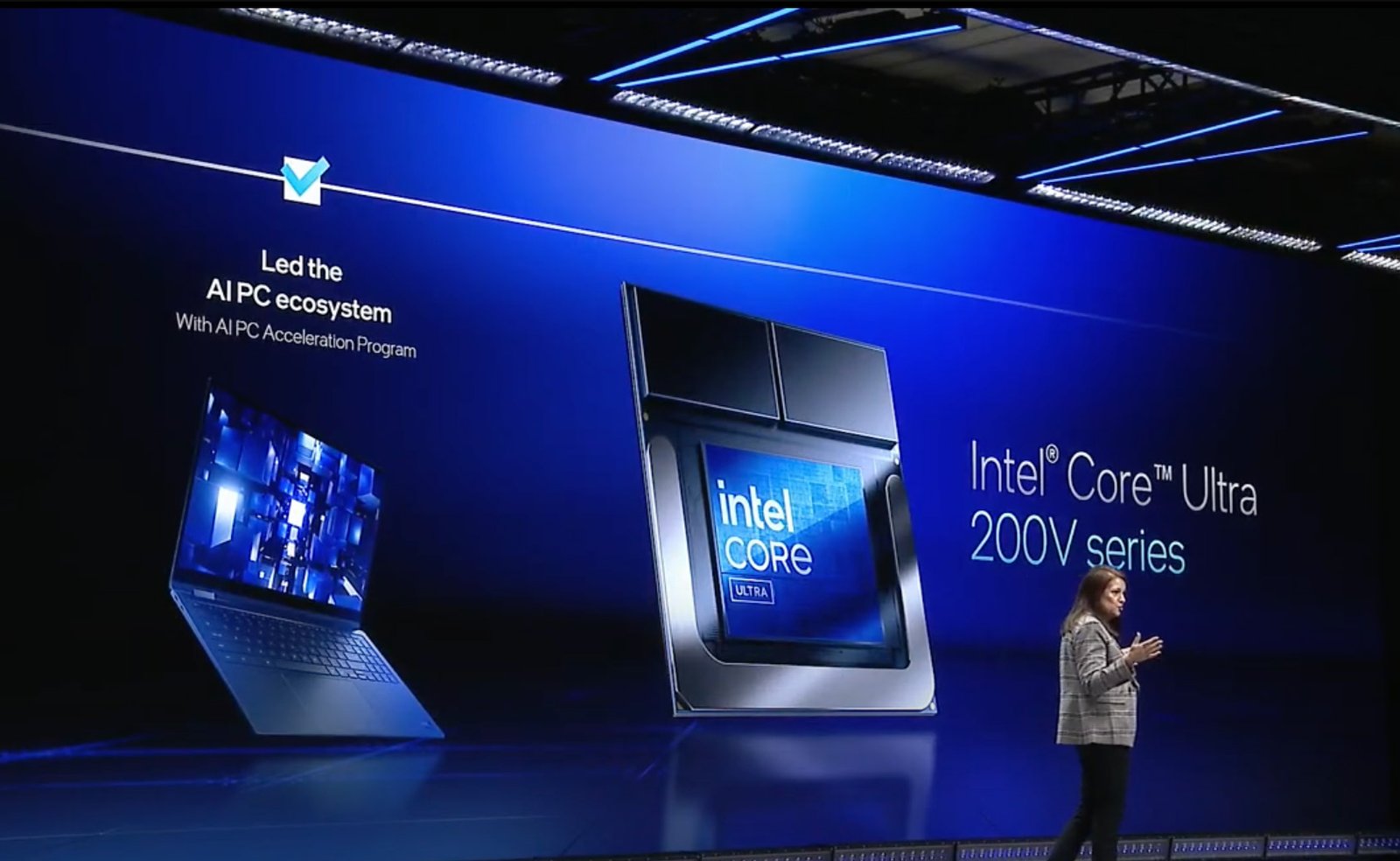
Intel Core Ultra 200V Series Redefines Battery Life and AI for Intel Laptops
At CES 2025, Intel made a major announcement by officially unveiling its next-generation Core Ultra 200V series processors, codenamed “Lunar Lake.” These processors mark a strategic pivot from Intel to redefine the competitive mobile computing landscape for Intel-based laptops versus their ARM-based competitors. Intel previously provided information about the architecture at IFA 2024.. This time around, physical processors have been announced and you can expect an avalanche of new laptop updates from your favorite PC manufacturers.
Focus on energy efficiency and battery life
The defining characteristic of Lunar Lake processors is their focus on power efficiency. While there are incremental improvements in processor performance, Intel’s main goal with this release is to significantly extend battery life. In this regard, the Series 2 processors should compete with ARM-based platforms, a segment where Intel has faced stiff competition in recent years.
Intel’s internal testing using the Procyon performance suite shows promising battery performance, making the Lunar Lake V series a strong competitor to ARM Windows laptops. The shift could help Intel gain a foothold in the ultramobile segment, where battery life often drives purchasing decisions. However, 5G Connectivity is also an important secondary factor.
Competitive positioning and backward compatibility
The release of the Core Ultra 200V series comes at a pivotal time for Intel. ARM Windows laptops posed a real threat to Intel’s historical dominance. However, Lunar Lake’s ability to extend battery life while maintaining the backward compatibility inherent to Intel platforms provides a significant competitive advantage.
Backward compatibility remains one of Intel’s most powerful differentiators, ensuring legacy Windows applications and drivers run smoothly. This aspect remains a stumbling block for ARM-based alternatives, which may have software issues that keep some users from switching. Intel needed to come up with a solution to the battery life problem before its ARM competitors could get the compatibility issues down to a “good enough” level.
Improved AI and graphics performance
Beyond processor power efficiency, Intel has made notable strides in graphics performance and artificial intelligence. The new processors are designed to power the next generation of laptops with artificial intelligence. Equipped with Microsoft Copilot-compliant Neural Processing Units (NPUs), these processors position Intel well in the growing AI-enhanced PC market.
This AI-centric approach fits into a broader industry trend of integrating specialized hardware for AI workloads on the device, delivering faster, more responsive computing experiences without heavy reliance on cloud infrastructure.
Arrangement
The Intel Core Ultra 200V Series portfolio includes nine different Intel Core Ultra 200V Series SKUs covering a wide range of performance and price points. PC builders can evaluate the performance hierarchy by examining the number of cores, GPU cache configurations and characteristics. Power consumption of Lunar Lake processors ranges from 17 to 37 W, providing versatility for ultraportable laptops and productivity-oriented devices.
With the release of Intel Core Ultra (Series 2) Lunar Lake processors, Intel has decisively responded to the most pressing competitive threats in the mobile computing market. By focusing on battery life, power efficiency and artificial intelligence capabilities, Intel is positioning itself to solve the problems facing ARM-based competitors while building on the strengths that have historically underpinned its success. As these processors make their way into the next generation of laptops, we’ll see how they perform in real-world scenarios.
Filed in . Read more about CES 2025, Intel, Laptops And Processors.
2025-01-06 21:34:35